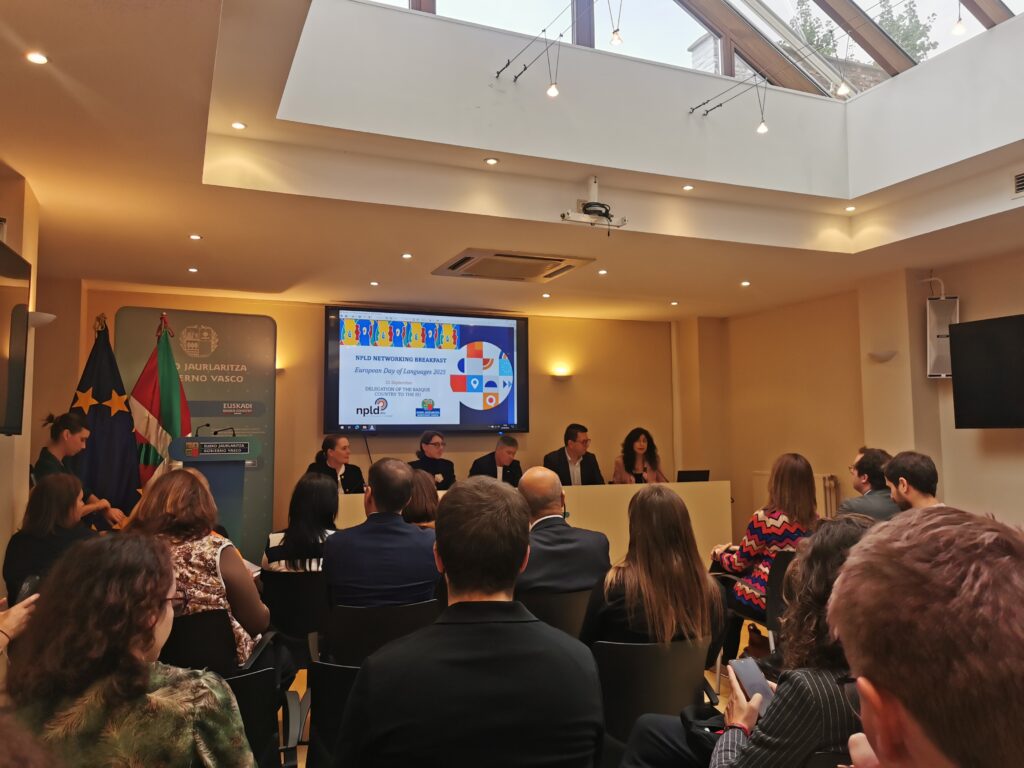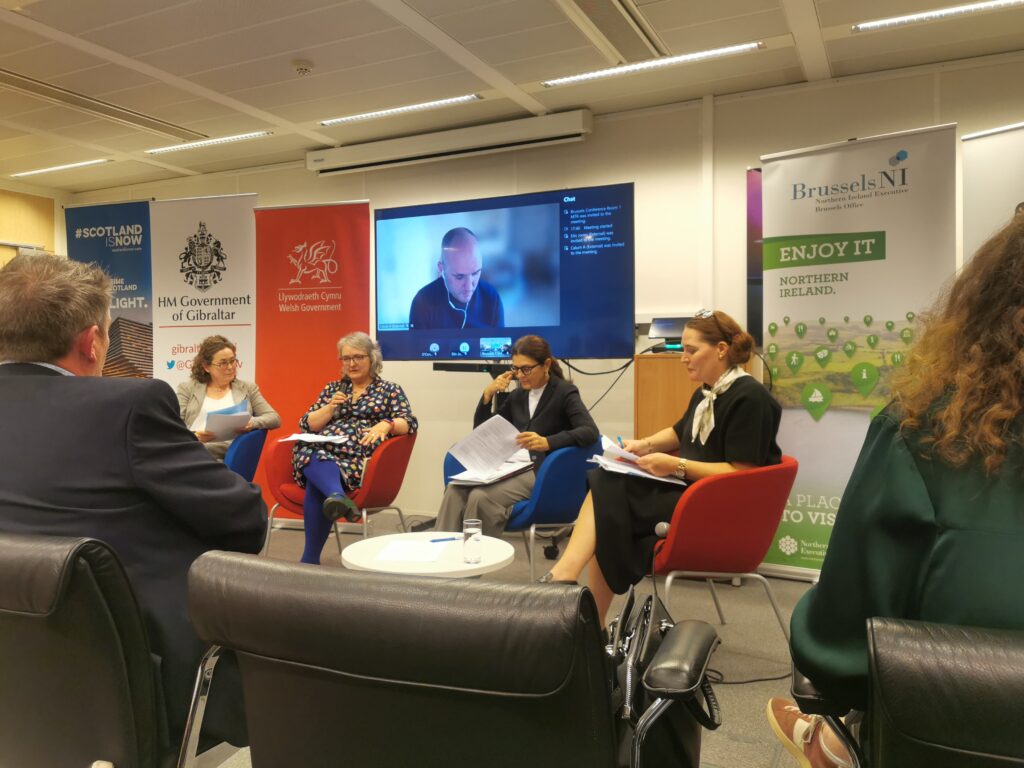European Day of Languages
26/09/2025

Today EARLALL celebrate the Day of Languages and during the week, we had the privilege to be invited to two events.
Regenerating Minority Languages Through Lifelong Learning and the Arts
On the 24 of September, EARLALL was invited by the Welsh Government to the conference Regenerating Minority Languages Through Lifelong Learning and the Arts. The event gathered policymakers and community representatives from across Europe to explore how lifelong learning can ensure the survival and flourishing of minority languages.
The panel discussions, moderated by NPLD Chair Anna Jungner-Nordgren, stressed the importance of lifelong learning in sustaining languages and highlighted the need to prepare minority languages for digitalization. Without investment in digital tools, minority languages risk being excluded from the future. Encouraging the use of artificial intelligence as an ally in preservation of languages set the tone for the day. Speakers repeatedly underlined that language is not only a tool of communication but also a vital part of identity and social inclusion. For minority and regional languages, lifelong learning offers both practical opportunities and cultural pathways, with AI and the arts playing a central role.
Lifelong Learning in the Arts and AI
A key theme across the panels was how minority languages can survive by being woven into everyday life through the arts, gaming, books and AI. Martin Johnson, Director of the EU Directorate for the Scottish Government, pointed to literature as essential for long-term survival. He stressed that community-driven publications, such as recent books in Scottish, demonstrate how culture and language can endure through local initiatives.

The panel described how teachers and students can learn together, creating safe and collaborative spaces. She also highlighted how younger generations often revive the languages of their elders, closing generational gaps and strengthening community ties. Games, she added, are a powerful entry point. Even simple activities like “rock, scissors, paper” in minority languages can make learning playful and engaging. Tony Woods, CEO of Seedling and creates educational and interactive learning materials, focused on the digital realm. Working on platforms for educational publishers, he presented interactive learning approaches for young learners. “Put the tools in the hands of educators,” he said, showing how AI can support schools and help revive languages.
Speakers also confronted the obstacles. Limited funding and a shortage of human resources remain pressing issues. Beyond resources, stigma continues to weigh heavily. Too often, outside voices dictate how minority communities should treat their languages. Panelists stressed that diversity, creativity, and dialogue are essential to avoid repeating historic mistakes. Dr. Breesha Maddrell reminded participants that the arts are a powerful driver of connection. “The arts hit you in the heart space,” she said. She shared examples of inclusive projects, from visual arts for neurodivergent learners to creative platforms developed by emerging artists, that bring languages alive in new ways. Dr. Maddrell underlined the human dimension, stating, “We need to do more, therefore we need the arts.”. The panel also showcased influencers who openly addressed stigma and made native speakers pride over their heritage as an effective way of reconnecting communities.
Shared Struggles, Shared Solutions
One message resonated clearly; whether in Wales, Scotland, or the Sámi regions, minority languages face similar struggles. Many communities experience generational divides. In some, older generations still carry the language while younger people do not. In others, youth step forward to reclaim languages once stigmatized for their elders. Lifelong learning offers tools to bridge these divides, but true survival requires integration into daily life and community. From arts and literature to gaming and digital platforms, minority languages must remain active in every sphere of society.
The conference closed with a strong call to view minority languages as living, evolving parts of our shared future. From classrooms to community centers, from social media to the stage, lifelong learning can ensure these languages not only survive but thrive. As one participant put it, “Minority languages exist in every corner of the world. They may never have shared the same territories, but they share the same challenges, and together, the same hope for the future.”
Basque Breakfast Event for Network to Promote Linguistic Diversity
The European Day of Languages celebrations continued with the Network to Promote Linguistic Diversity (NPLD) hosting its Networking Breakfast at the Delegation of the Basque Country to the EU in Brussels. The event, chaired by Anna Jungner-Nordgren and Aitor Aldasoro Iturbe, gathered government representatives and officials from across Europe to reflect on the future of languages.
At the breakfast, Éamon Ó Cuív, former Irish Minister for Community for Rural and Gaeltacht Affairs, recalled Ireland’s campaign to try to secure EU working-language status for Irish and stressed that Europe must continue to recognize minority languages at the highest level. He argued that Irish and other regional languages should become official EU working languages, but warned that recognition at the European level must begin with active use in their own regions. “Diversity makes us better people,” he concluded, reminding participants that language is both a personal treasure and a collective responsibility.

